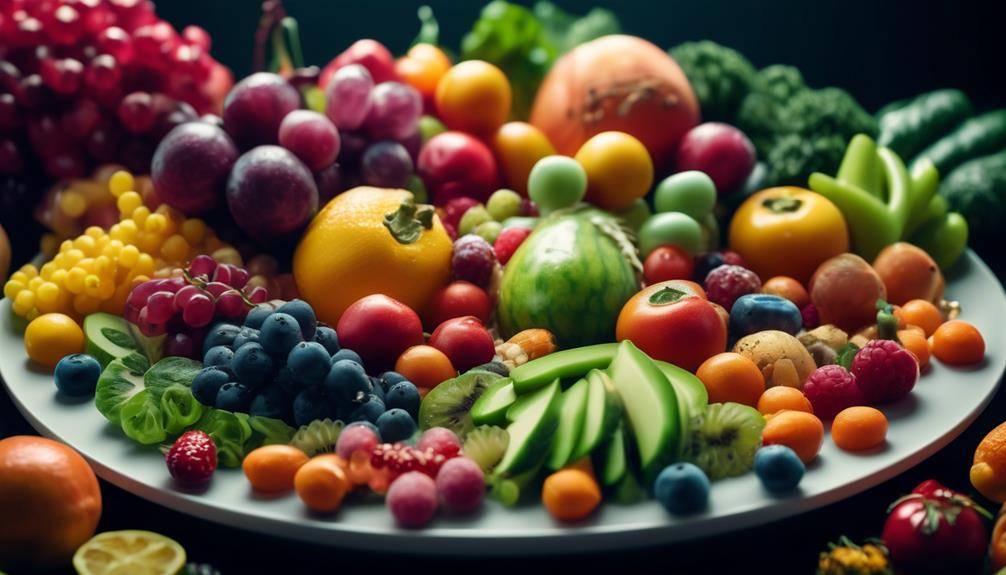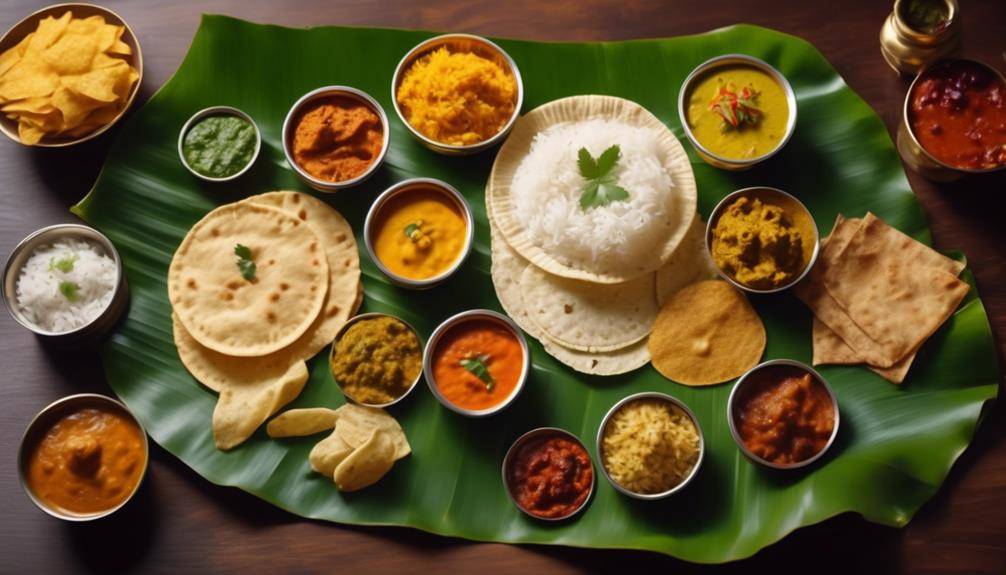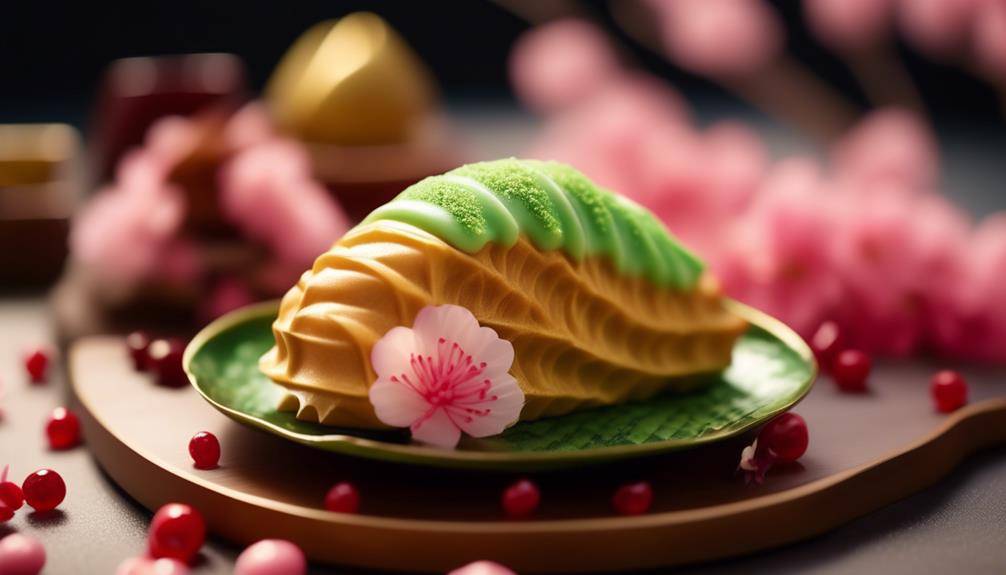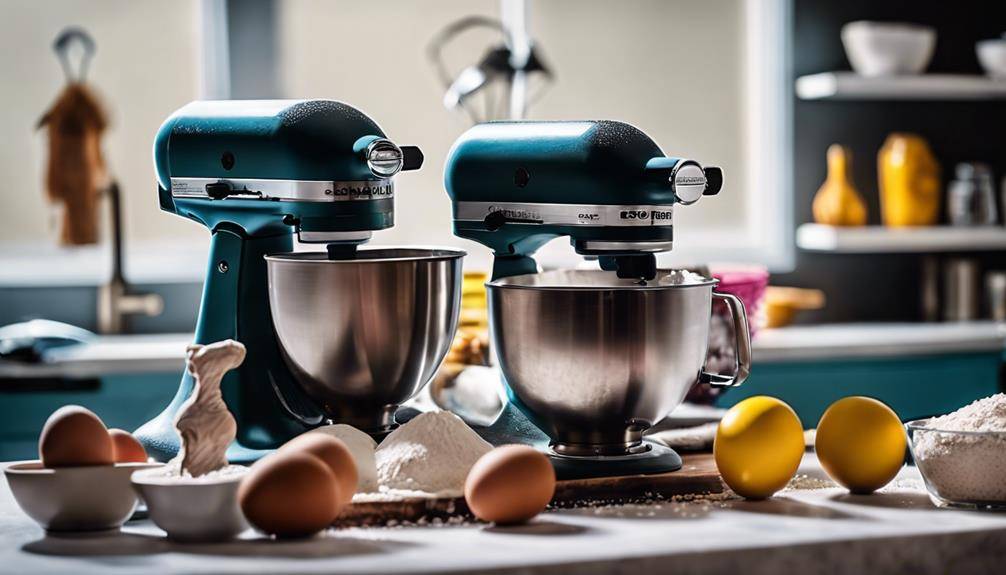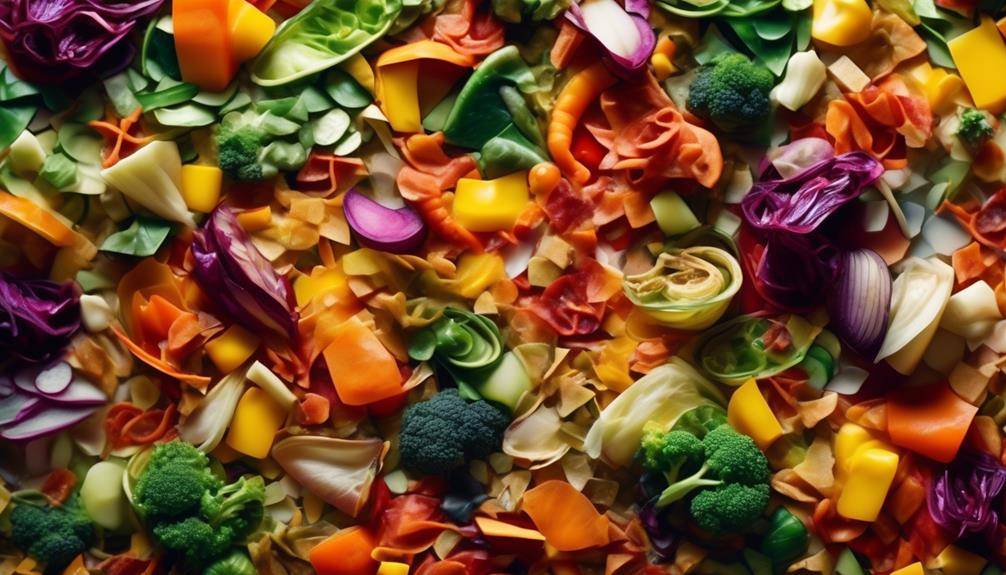The Best Vegan-Friendly Baking Methods
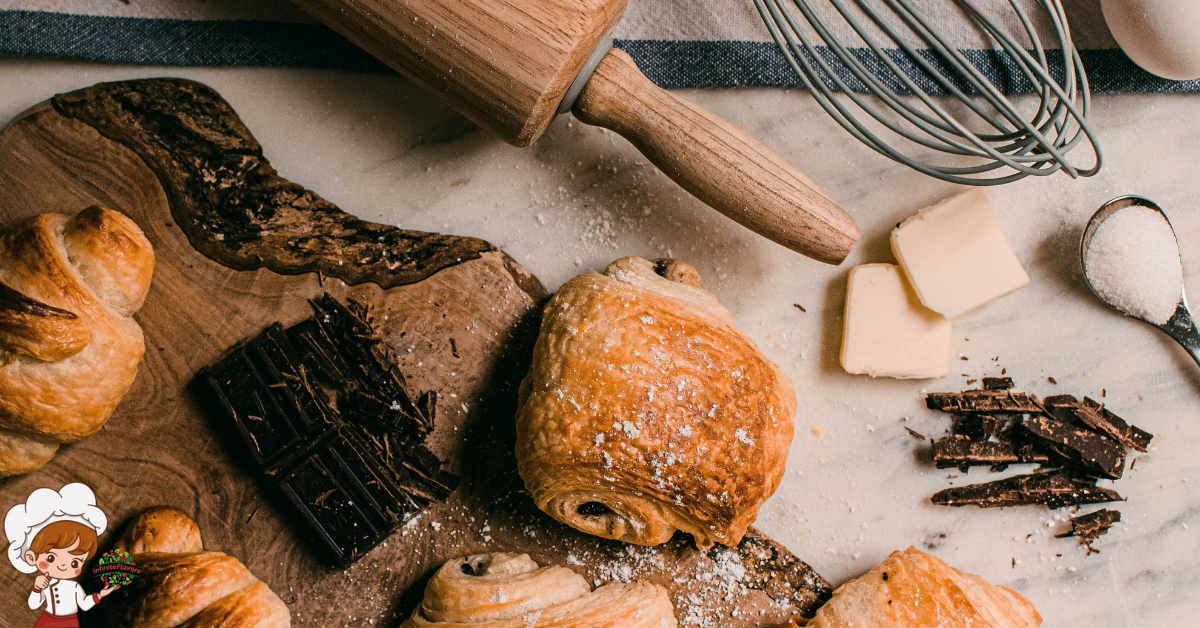
Best Vegan-Friendly Baking Methods; Imagine stepping into a bakery, the comforting aroma of freshly baked goods enveloping you. As you approach the display case, your eyes are drawn to a mouthwatering assortment of pastries, cakes, and cookies, each one more tempting than the last. But here’s the catch: you’re on a vegan diet, and finding vegan-friendly baked treats can sometimes be a challenge. Fear not, for in the world of baking, there are a multitude of methods and ingredients that cater to your dietary preferences. So, how can you achieve that perfect texture, taste, and indulgence without compromising your vegan lifestyle? Let’s explore the world of vegan-friendly baking methods together.
Essential Vegan Baking Ingredients
To successfully bake vegan treats, it is essential to have a selection of key ingredients that will provide the necessary structure, texture, and flavor you desire. When it comes to dairy-free baking substitutes, there are a variety of options available that can replicate the functionality of traditional animal-based ingredients. One popular dairy-free substitute is plant-based milk, such as almond, soy, or oat milk. These alternatives can be used in place of cow’s milk in equal quantities, providing the necessary moisture and texture to your baked goods. Another dairy-free substitute is coconut oil, which can replace butter in most recipes. Coconut oil not only adds richness and moisture to your treats but also imparts a subtle coconut flavor.
In addition to dairy-free substitutes, vegan-friendly sweeteners are necessary to add sweetness to your baked goods. One common vegan sweetener is maple syrup, which is derived from the sap of maple trees. It not only adds sweetness but also contributes a unique flavor to your treats. Another option is agave nectar, which is extracted from the agave plant. Agave nectar is sweeter than sugar, so you will need to adjust the amount when substituting it in recipes. Additionally, you can use coconut sugar as a vegan-friendly sweetener. Coconut sugar is made from the sap of coconut palm trees and has a similar taste to brown sugar.
Substituting Dairy in Baking
When it comes to baking without dairy, there are a variety of dairy-free alternatives that can be used. These alternatives include plant-based milk such as almond, soy, or oat milk, as well as vegan butter or margarine. These substitutes can provide the necessary moisture and fat content in baked goods, resulting in delicious vegan-friendly treats.
Dairy-Free Alternatives
One effective method for substituting dairy in baking is by using dairy-free alternatives. There are several options available in the market that can provide the same texture and flavor as dairy products. When it comes to yogurt, there are various dairy-free yogurt alternatives that can be used in baking. These alternatives are typically made from plant-based ingredients such as soy, almond, or coconut milk. They can be used as a 1:1 replacement for regular yogurt in recipes.
Similarly, for those who enjoy the creamy texture of cheese in their baked goods, plant-based cheese alternatives are a great choice. These alternatives are typically made from nuts, soy, or tapioca starch and are available in various flavors and textures. They can be used in recipes that call for shredded or melted cheese, providing a similar taste and texture to traditional dairy cheese.
Baking Without Milk
Baking without milk can be achieved by substituting dairy products with plant-based alternatives. There are several non-dairy milk options available that can be used as a replacement in baking. One popular option is almond milk, which has a creamy texture and a slightly nutty flavor. Soy milk is another common choice, and it has a neutral taste that blends well with other ingredients. Coconut milk is a rich and creamy option that adds a tropical twist to baked goods. Oat milk, rice milk, and hemp milk are also viable alternatives.
When substituting milk in baking, it’s important to consider the flavor and consistency of the non-dairy milk and how it will affect the final product. Experimentation may be necessary to find the best non-dairy milk option for each individual recipe.
Alternatives to Eggs in Baking
When it comes to baking without eggs, there are several alternatives you can use. One option is to use egg replacements, such as mashed bananas or applesauce, which can provide moisture and binding properties. Another option is to make a flaxseed gel by mixing ground flaxseeds with water, which can mimic the texture and binding properties of eggs. Lastly, you can try using aquafaba, which is the liquid from canned chickpeas, as it has the ability to whip and create structure in baked goods.
Egg Replacements
To replace eggs in baking, consider using alternative ingredients that provide similar binding and leavening properties. Two popular options for egg replacements in vegan baking are flaxseed and aquafaba. Flaxseed is a plant-based binder that can be used as a substitute for eggs due to its high content of omega-3 fatty acids and fiber.
To use flaxseed as an egg replacement, mix one tablespoon of ground flaxseed with three tablespoons of water and let it sit for a few minutes until it forms a gel-like consistency. Aquafaba, on the other hand, is the liquid found in canned chickpeas or the cooking liquid of boiled chickpeas. It can be whipped and used as a substitute for egg whites in recipes such as meringues and macarons. When exploring plant-based binders for vegan baking, flaxseed and aquafaba are worth considering as they provide effective egg replacements while maintaining the desired texture and structure of baked goods.
Flaxseed Gel
Consider using flaxseed gel as an effective alternative to eggs in your vegan baking recipes. Flaxseed gel is made by mixing ground flaxseeds with water and allowing it to sit until it thickens into a gel-like consistency. This gel can be used as a binding agent, providing structure and moisture to baked goods. One of the main benefits of flaxseed gel is its high content of omega-3 fatty acids, which are essential for brain health and reducing inflammation in the body.
Additionally, flaxseed gel is rich in fiber, which aids in digestion and helps regulate blood sugar levels. To make flaxseed gel, simply mix 1 tablespoon of ground flaxseeds with 3 tablespoons of water and let it sit for 10 minutes until it thickens. This gel can then be used as an egg replacement in your favorite vegan recipes.
Aquafaba
Aquafaba, a versatile liquid found in canned chickpeas, is an excellent alternative to eggs in vegan baking recipes. This viscous substance is made up of water that has been used to cook chickpeas. Its unique composition gives it the ability to mimic the properties of eggs, making it a popular ingredient among vegan bakers.
Exploring aquafaba uses opens up a world of creative possibilities in the kitchen. It can be used as a binder, emulsifier, or even whipped into a foam to create light and airy textures in baked goods. Some creative aquafaba recipes include vegan meringues, macarons, and marshmallows. Its neutral taste allows it to seamlessly blend into various recipes, making it a go-to ingredient for those seeking vegan-friendly alternatives in baking.
Using Plant-based Sweeteners
When incorporating plant-based sweeteners into your vegan baking recipes, it is important to choose options that are not only delicious but also provide the necessary sweetness without compromising the taste or texture of your baked goods. Plant-based sweeteners offer natural alternatives to traditional refined sugars, making them a healthier choice for your vegan baking needs.
One popular plant-based sweetener is maple syrup. Made from the sap of maple trees, maple syrup is a natural sweetener that adds a rich, caramel-like flavor to your baked goods. It also contains essential minerals such as zinc and manganese, which can contribute to a healthy diet.
Another great option is coconut sugar, which is derived from the sap of coconut palm trees. Coconut sugar has a low glycemic index, meaning it causes a slower rise in blood sugar levels compared to refined sugars. It also contains minerals like iron, potassium, and zinc.
Stevia is a plant-based sweetener that is extracted from the leaves of the Stevia rebaudiana plant. It is incredibly sweet and has zero calories, making it a popular choice for those watching their calorie intake. Stevia is also known for its potential health benefits, such as its ability to lower blood sugar levels and blood pressure.
Agave nectar is another plant-based sweetener that is derived from the Agave tequilana plant. It is sweeter than sugar and has a lower glycemic index, making it a suitable option for those with diabetes or watching their blood sugar levels.
Gluten-Free Vegan Baking Tips
To ensure successful gluten-free vegan baking, it is important to use alternative flours and ingredients that provide structure and moisture without the use of wheat or animal products. Gluten-free vegan bread recipes can be challenging to perfect, but with the right tips, you can achieve delicious and satisfying results.
When it comes to gluten-free baking, it’s crucial to choose the right flours. Opt for a blend of gluten-free flours such as rice flour, almond flour, tapioca flour, and potato starch. This combination will provide the necessary structure and texture for your baked goods. Additionally, xanthan gum or psyllium husk powder can be added to mimic the elasticity that gluten provides.
Another important tip is to pay attention to the moisture content in your recipes. Gluten-free flours tend to absorb more moisture, so it’s essential to increase the liquid ingredients slightly. This can be done by adding more plant-based milk, oil, or even fruit purees such as applesauce or mashed bananas. These ingredients not only add moisture but also contribute to the overall flavor and texture of your baked goods.
In gluten-free vegan baking, it’s also crucial to replace eggs, which provide structure and moisture. You can use ingredients such as ground flaxseeds or chia seeds mixed with water as an egg substitute. These ingredients create a gel-like consistency that helps bind the ingredients together.
Incorporating Nut Butters in Recipes
To further enhance the structure and flavor of your gluten-free vegan baked goods, incorporating nut butters into your recipes can be a nutritious and delicious option. Nut butters not only add richness and depth to your baked goods, but they also provide valuable nutrients like healthy fats, protein, and fiber. Two popular nut butters that work exceptionally well in vegan baking are almond butter and peanut butter.
Almond butter is a versatile ingredient that can be used in a variety of vegan recipes. Its creamy texture and mild nutty flavor make it an excellent replacement for dairy butter or oil. When using almond butter in baking, it is important to choose a smooth and creamy variety to ensure a smooth batter or dough. You can use almond butter in cookies, brownies, cakes, and even as a base for vegan frosting. It adds moisture and a subtle nutty taste that complements many flavors.
Peanut butter is another fantastic option for incorporating into vegan recipes. Its rich and slightly sweet taste pairs well with both savory and sweet ingredients. Peanut butter adds a unique flavor profile to your baked goods and can be used in cookies, muffins, and energy bars. It is also a great choice for making vegan peanut butter cups or spreading on top of vegan pancakes or waffles.
When incorporating nut butters into your vegan baking, it is essential to consider the consistency and moisture content of your recipe. Nut butters can affect the texture of your baked goods, so it may be necessary to adjust the amount of liquid or leavening agents in your recipe. Additionally, be mindful of any allergies or dietary restrictions your audience may have and provide alternatives if needed.
Exploring Aquafaba as an Egg Replacer
Aquafaba, a plant-based ingredient derived from the liquid found in cooked chickpeas, has gained popularity as a versatile and effective egg replacer in vegan baking. It has become a go-to ingredient for those looking to create vegan meringues and explore meringue alternatives. The use of chickpea brine as an egg substitute in baking has opened up a whole new world of possibilities for vegan bakers.
Aquafaba works as an egg replacer because it has similar properties to egg whites. It contains proteins and starches that can mimic the binding, leavening, and emulsifying abilities of eggs. The proteins in chickpea brine can create a stable foam structure, making it an excellent substitute for egg whites in recipes that require aeration.
To use aquafaba as an egg replacer, simply drain the liquid from a can of cooked chickpeas and save it for your baking needs. It is important to note that not all aquafaba is created equal. The brine from canned chickpeas tends to work best due to its higher protein content. However, you can also make your own aquafaba by cooking dried chickpeas and using the liquid from the cooking process.
When using aquafaba in recipes, it is important to consider the ratios. In most cases, three tablespoons of aquafaba can replace one whole egg, while two tablespoons can replace one egg white. It is also important to whip the aquafaba to achieve the desired texture and volume. You can use an electric mixer or a whisk to whip the aquafaba until it forms stiff peaks, just like egg whites.
Baking With Coconut Milk and Cream
When incorporating coconut milk and cream into your vegan baking recipes, you’ll discover a rich and creamy alternative that adds a tropical twist to your treats. Coconut milk is derived from the flesh of mature coconuts and is known for its smooth texture and subtle sweetness. It can be used as a dairy-free substitute for regular milk in a wide range of recipes. Whether you’re making cakes, cookies, or even ice cream, coconut milk can enhance the taste and texture of your baked goods.
Coconut milk is versatile and can be used in various coconut milk recipes. It can be used as a liquid ingredient in cake and muffin batters, providing moisture and richness. It can also be used to make vegan whipped cream, which can be used as a topping for pies, cakes, or even hot cocoa. Additionally, coconut milk can be used to make creamy vegan sauces or frostings.
Coconut cream, on the other hand, is a thicker and richer version of coconut milk. It is made by simmering coconut milk and allowing it to cool, causing the cream to rise to the top. Coconut cream desserts are decadent and indulgent, perfect for satisfying your sweet tooth. You can use coconut cream to make creamy vegan puddings, custards, or even cheesecakes.
When using coconut milk or cream in your vegan baking, it is important to remember that they have a distinct flavor, so they may not be suitable for every recipe. However, for recipes that pair well with the tropical taste of coconut, these alternatives can add a unique and delicious twist to your vegan treats.
Vegan-Friendly Butter Substitutes
When it comes to vegan-friendly butter substitutes, there are a few options to consider. One option is oil-based alternatives, such as vegetable oil or coconut oil, which can provide a similar texture and flavor to butter. Another option is nut-based alternatives, like almond or cashew butter, which can add a creamy richness to baked goods. Both oil-based and nut-based substitutes can be used in a 1:1 ratio as a replacement for butter in vegan baking recipes.
Oil-Based Alternatives
To replace butter in vegan baking, you can explore a variety of oil-based alternatives that offer similar functionality and flavor. Oil-based substitutions have become popular in vegan baking due to their numerous benefits. Firstly, oils provide moisture and richness to baked goods, just like butter does. They help create a tender and moist texture in cakes, cookies, and pastries.
Additionally, oils contribute to the overall taste and flavor of the final product. Different oils, such as coconut oil, olive oil, and avocado oil, can add their unique flavors to the baked goods. Moreover, oils are also a healthier option compared to butter, as they contain no cholesterol and are lower in saturated fats. When substituting butter with oils in vegan baking, it is important to consider the specific flavor profile and cooking temperature requirements of the recipe.
Nut-Based Alternatives
Nut-based alternatives are a popular choice for vegan-friendly butter substitutes in baking. Incorporating nut flours into your baked goods can add a rich and nutty flavor while providing a moist and tender texture. Almond flour, for example, is a versatile option that can be used in a variety of recipes, from cookies to cakes. It contains healthy fats, protein, and fiber, making it a nutritious choice.
Additionally, nut-based spreads can be used as frosting alternatives. For instance, cashew or almond butter can be whipped with a bit of sweetener and vanilla extract to create a creamy and delicious frosting for your cakes and cupcakes. These nut-based alternatives offer a great way to achieve the desired taste and texture in vegan baking while also adding nutritional value.
Vegan Chocolate and Cocoa Options
For vegan-friendly baking, there are a variety of options available when it comes to choosing chocolate and cocoa products. Whether you’re making vegan chocolate chip cookies or cocoa powder recipes, there are alternatives that are both delicious and cruelty-free.
When it comes to vegan chocolate chips, you can find a wide range of options made from plant-based ingredients. Look for brands that specifically state that their chocolate chips are vegan, as some may contain dairy or other animal-derived ingredients. These vegan chocolate chips are typically made from cocoa butter, sugar, and flavors like vanilla. They provide the same rich and indulgent taste that you would expect from traditional chocolate chips.
If you’re looking to incorporate cocoa powder into your vegan baking, there are many vegan-friendly options available. Just like with chocolate chips, it’s important to check the label to ensure that the cocoa powder does not contain any animal products. Many brands offer cocoa powder that is made solely from cocoa beans, without any added milk or other animal-derived ingredients. These vegan cocoa powders can be used in a variety of recipes, from cakes and brownies to hot chocolate and smoothies.
In addition to traditional cocoa powder, there are also some unique vegan cocoa products on the market. For example, you can find cocoa nibs, which are small pieces of roasted cocoa beans. These nibs can add a crunchy texture and intense chocolate flavor to your vegan desserts.
Unleashing the Power of Flaxseed in Baking
If you’re looking to enhance the nutritional value of your vegan baked goods, one ingredient that can truly unleash its power in baking is flaxseed. Flaxseed, derived from the flax plant, is known for its numerous health benefits and versatility as an egg substitute in vegan recipes.
Flaxseed is packed with essential nutrients, such as omega-3 fatty acids, fiber, and protein. These nutrients contribute to overall heart health, aid in digestion, and boost the immune system. Incorporating flaxseed into your baked goods can provide an added nutritional punch, making them a healthier option for you and your family.
One of the key benefits of flaxseed is its ability to replace eggs in baking. When mixed with water, flaxseed forms a gel-like substance that acts as a binding agent, similar to eggs. This makes it an excellent substitute for vegans or individuals with egg allergies. To use flaxseed as an egg substitute, simply mix one tablespoon of ground flaxseed with three tablespoons of water and let it sit for a few minutes until it becomes thick and gelatinous. This mixture can then be used as a replacement for one egg in your recipes.
In addition to its health benefits and egg-replacement properties, flaxseed also adds a nutty flavor and texture to your baked goods. It can be used in various forms, including whole seeds, ground seeds, or flaxseed meal. Whole flaxseeds can be sprinkled on top of bread or muffins for added crunch, while ground flaxseed or flaxseed meal can be used in place of flour or as a thickening agent in recipes.
Best Vegan-Friendly Baking Methods; Frequently Asked Questions
Can I Use Regular Flour in Vegan Baking Recipes?
You can use substitutes for regular flour in vegan baking recipes. Some options include almond flour, coconut flour, and whole wheat flour. Experiment with different combinations to achieve the right texture.
What Are Some Alternatives to Butter in Vegan Baking?
Plant-based spreads and oil substitutes are great alternatives to butter in vegan baking. They provide the necessary fat for texture and flavor. Experiment with options like coconut oil, avocado, or nut butters for delicious vegan-friendly treats.
How Can I Replace Eggs in Recipes That Require a Lot of Structure, Like Cakes or Breads?
To replace eggs in recipes that require structure, like cakes or breads, you can try using vegan baking substitutes like flaxseed meal, applesauce, or mashed bananas. These alternatives can provide moisture and binding properties, resulting in delicious egg-free baked goods.
Can I Use Regular Sugar in Vegan Baking, or Do I Have to Use Plant-Based Sweeteners?
You can use regular sugar in vegan baking, but there are alternatives to plant-based sweeteners. The choice of sweetener can impact the final product, affecting taste, texture, and overall quality.
Are There Any Specific Tips for Gluten-Free Vegan Baking?
To achieve a light and fluffy texture in gluten-free vegan baking, it’s important to use a combination of gluten-free flours like almond, rice, and tapioca. Enhance flavors by adding spices, extracts, and fruits.
Conclusion
In conclusion, vegan-friendly baking methods offer a range of options for those looking to avoid animal products. By utilizing essential vegan baking ingredients, substituting dairy and eggs, and using plant-based sweeteners, individuals can create delicious and cruelty-free baked goods. Additionally, gluten-free options and alternatives such as coconut milk and cream, vegan butter substitutes, and flaxseed can further enhance the taste and texture of vegan baked goods. With these methods, vegan baking can be both enjoyable and nutritious.




